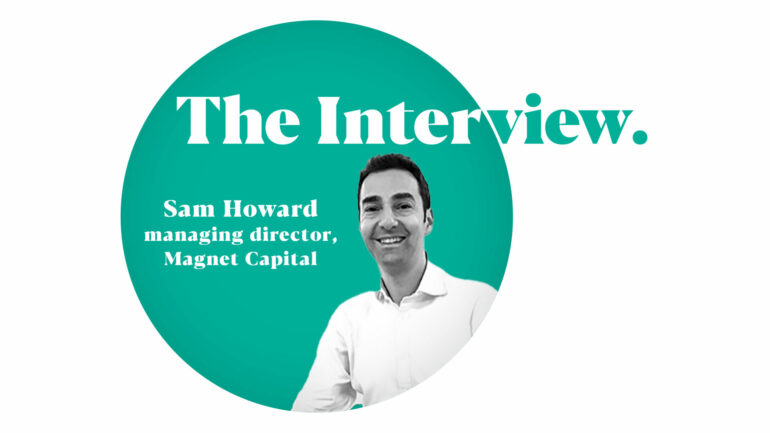The Intermediary speaks to Sam Howard, managing director of development finance lender Magnet Capital, about supply issues, what brokers should consider when placing a deal and what sets the firm apart from other lenders.
Supply issues and price falls have dominated the headlines over the past months. How is the property development market looking at the moment?
The fateful mini-Budget in September 2022 has had a significant effect on the UK housing market and it is clear the age of cheap money has come to an end.
This has had an immediate effect on mortgage availability and affordability and unsurprisingly we have seen mortgage applications and sales agreed drop along with house price falls.
However, the market is now significantly calmer, with the indications being that inflation is peaking and will then come down, meaning the longer-term interest direction should be downwards.
This is ultimately what buyers are looking at. So whilst the housing market will undoubtedly see downward pressure in the short term and prices will come down, we are hopeful that it will not lead to a significant market drop.
Further, the reality is that even if the market comes off 10%, it is still not back to June 2020 levels.
The other force at play is the sheer lack of supply of good quality new housing on the market. This is a common complaint we hear from estate agents and surveyors.
The lack of supply of new housing has been a major issue for decades due simply to a shortage of SME house builders but this has been exacerbated by the archaic planning system, the power of nimbyish, and the pandemic slowing the whole process down.
We have recently seen the situation exacerbated by red tape by councils preventing sites from being built due to environmental reasons such as nutrient neutrality which is having a significant impact on our developers in some parts of Norfolk.
Until we see significantly more housing availability and a reform of planning the laws of supply and demand in the longer term will put upward pressure on the housing market.
There have been issues around building materials and labour impacting the sector? What’s the current state of play on that front?
The building materials and labour market has been extremely tough for developers ever since the reopening of the housing market in June 2020 and this year has been no different.
We are seeing our borrowers facing anything from 10%-20% plus increases in build costs and difficulty finding key trades.
Whereas some materials have come down such as timber, my clients have been complaining about the overall prices of materials with examples such as plaster having almost tripled in 2022, and roof tiles also increasing dramatically.
We are hoping that labour will free up as the froth comes off the market and building materials prices will drop a bit as supply chain issues ease and as inflation peaks but again whether this filters down to the SME builders we will have to wait and see.
Over the years many lenders have entered the market with “development finance products” but are there enough ground up development finance lenders?
Ground up development finance is a very different beast to light refurbishment projects. It is easy to look at the location of the site and the asset that the borrower is building and think it is similar to a bridge but the reality is that it is completely different.
We have picked up a number of projects from clients who have been messed around by bridging lenders who do not have the experience of development finance and the inherent risks involved.
What advice would you give for brokers looking to get involved in the development finance space?
My advice to brokers would be first and foremost to understand the key differences between a development finance deal and other short-term lending.
This will enable them to know which lenders to point their clients to and manage their expectations.
Ultimately, they need to know which lenders will provide their clients with the certainty and level of service to enable them to build their site out as quickly and possible and sell or refinance.
Headline rates are very deceptive and often disguise the real cost and experience that a developer will experience.
What are Magnet Capital’s USPs? What set’s you apart?
As a genuine specialist development finance lender, we are laser focussed on building long-standing relationships with our clients and proving time and again our added value.
Our clients have direct access to the decision-makers throughout the life cycle of the loan and this means we work in lockstep with the client and provide them with the expertise, flexibility, as well as the funds needed to complete the project as quickly as possible and to the highest quality.
You’ve experienced strong growth over the past year. What’s next for Magnet Capital?
2022 has seen really strong growth both in terms of new business signed and loans completed. We have grown as a team and are well-positioned for 2023.
I feel that our transparency and consistency had really helped cement long-term relationships both with clients and brokers.
As the economy and our industry move into choppy waters I believe that brokers are becoming more attuned to working with lenders that can be consistent and one that can become the best possible long-term partner for them and their clients alike.



